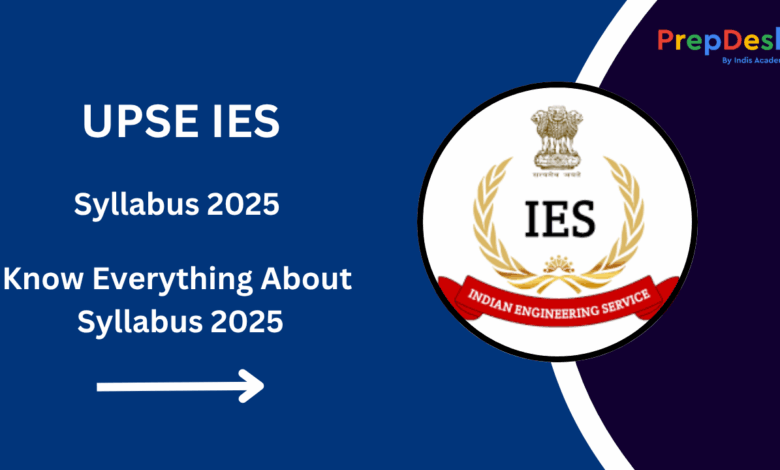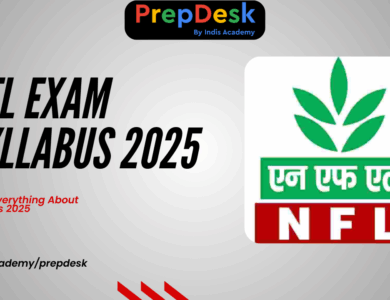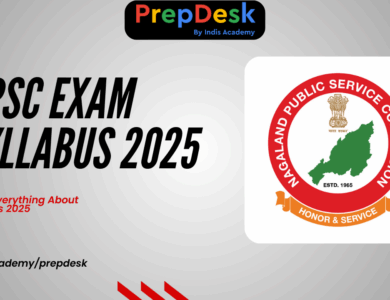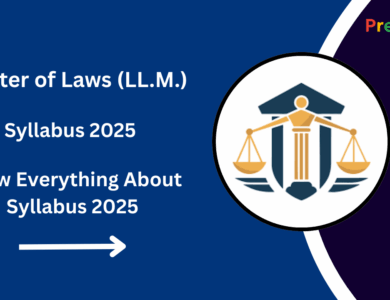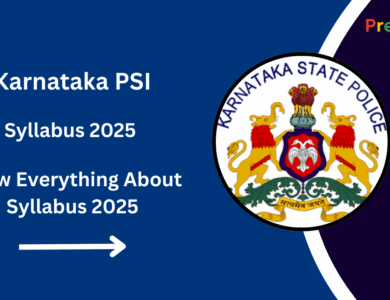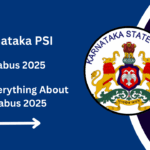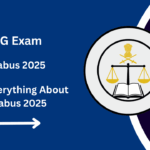The UPSC Engineering Services Examination (IES/ESE) is one of the most prestigious exams for engineering graduates in India. This guide provides a comprehensive overview of the syllabus, exam pattern, detailed subject-wise topics, preparation tips, recommended books, and specialization options after selection.
1. Exam Pattern & Structure
Stage
Papers
Type
Marks
Preliminary
Paper I (GS & Aptitude)
Objective
200 + 300 = 500
Main
Paper I & II (Core Discipline)
Descriptive
600
Personality Test
Interview
Descriptive
200
Total 1300 marks
2. Prelims – Paper I: General Studies & Engineering Aptitude (200 marks)
Topic
Details
Current Issues
National/international events, policies, infrastructure, green technology
Engineering Aptitude
Reasoning, data interpretation, basic puzzles
Engineering Mathematics
Calculus, differential equations, linear algebra, Fourier series
Design & Drawing
Freehand sketches, projections, scales, sectioning
Standards & Quality
ISO norms, QC tools, reliability, testing
ICT
Networking basics, cyber security, IoT fundamentals
Ethics & Values
Professional conduct, conflict resolution, responsibility
Project Management
CPM/PERT, scheduling, budgeting, risk control
Environment & Sustainability
Pollution control, eco-friendly engineering, climate action
Material Science
Properties/module of elasticity, composites, failure modes
3. Prelims – Paper II: Core Engineering Discipline (300 marks)
Civil Engineering Syllabus
Topic
Details
Building Materials & Construction
Concrete mix, steel grades, durability
Structural Analysis
Indeterminate structures, influence lines, energy methods
Steel & RCC Design
Limit state design, slender columns, beams, plates
Geotechnical Engineering
Soil classification, compaction, consolidation
Foundation Engineering
Shallow and deep foundations, pile load tests, settlement
Fluid Mechanics
Bernoulli’s theorem, head losses, hydraulic machines
Environmental Engineering
Water & wastewater treatment, solid waste management
Transportation Engineering
Pavement design, traffic systems, railway engineering
Surveying & Geomatics
Theodolite, total station, GPS mapping
Construction Management
Estimation, scheduling, contracts
Mechanical Engineering Syllabus
Topic
Details
Thermodynamics
Carnot cycle, Rankine cycle, refrigeration cycles
Fluid Mechanics & Turbo-machinery
Laminar and turbulent flow, pumps, turbines
Heat Transfer
Modes of heat transfer: conduction, convection, radiation
Strength of Materials
Stress-strain analysis, torsion, deflection
Theory of Machines
Mechanisms, cams, gears, balancing
Machine Design
Fatigue, bearings, shafts, fasteners
Manufacturing Technology
Machining processes, welding, CNC systems
Industrial Engineering
Plant layout, production planning, quality control
Power Plant Engineering
Boilers, turbines, thermal efficiency
Electrical Engineering Syllabus
Topic
Details
Circuit Theory & Fields
Transient analysis, network theorems, Maxwell’s equations
Electrical Machines
Generators, motors, transformers, testing methods
Power Systems
Load flow analysis, fault calculations, HVDC and FACTS
Control Systems
Block diagrams, transfer functions, PID controller design
Analog & Digital Electronics
Operational amplifiers, ADC/DAC converters, logic circuits
Measurements & Instrumentation
Transducers, calibration techniques, measurement errors
Power Electronics
Inverters, UPS systems, motor drives
Electronics & Telecommunication Engineering Syllabus
Topic
Details
Networks & Transmission Lines
Smith Chart, impedance matching, signal reflections
Devices & Analog Circuits
BJT and MOSFET transistor models, amplifier design
Digital Electronics
Flip-flops, counters, memory devices, microprocessors
Signals & Systems
Fourier and Laplace transforms, convolution, sampling theory
Control Systems
Stability analysis, root locus, Bode plot
Communication Systems
Analog and digital modulation techniques, fiber optics
Electromagnetics & Microwave Engineering
Waveguides, antennas, RADAR systems
Computer Organization
CPU architecture, pipelining, cache memory, buses
4. Mains – Paper I & II (Descriptive – 600 marks)
Civil Engineering Syllabus
Paper
Topics
Details
Paper I
RCC & Steel Design, Structural Dynamics, Water Resources, Hydraulics
RCC & Steel Design: Limit state design, slender columns, beams, plates
Structural Dynamics: Vibrations, seismic analysis, response spectrum
Water Resources: Hydrology, watershed management, irrigation systems
Hydraulics: Open channel flow, pipe flow, pumps, turbines
Paper II
Environmental Engineering, Solid Waste Management, Transport Infrastructure, Advanced Surveying, Contracts
Environmental Engineering: Water & wastewater treatment, air pollution control
Solid Waste: Collection, segregation, disposal methods
Transport Infrastructure: Pavement design, traffic systems, road & railway construction
Advanced Surveying: Total station, GPS, remote sensing
Contracts: Tendering, contract conditions, arbitration
Mechanical Engineering Syllabus
Paper
Topics
Details
Paper I
Thermodynamics, IC Engines, Steam Cycles
Thermodynamics: First and second laws, Carnot, Rankine cycles
IC Engines: Types, combustion, performance parameters
Steam Cycles: Rankine cycle, boilers, turbines
Paper II
Machine Design, Vibrations, Manufacturing Systems, Plant Engineering
Machine Design: Fatigue, shafts, bearings, fasteners
Vibrations: Free and forced vibrations, damping, resonance
Manufacturing Systems: Machining, welding, CNC
Plant Engineering: Plant layout, material handling, maintenance
Electrical Engineering Syllabus
Paper
Topics
Details
Paper I
Network Theory, Synchronous Machines, Protection Relays
Network Theory: Circuit theorems, transient analysis
Synchronous Machines: Operation, characteristics, testing
Protection Relays: Types, operation principles
Paper II
Control System Design, Power-Electronic Converters, Instrumentation
Control System Design: Transfer functions, stability analysis
Power Electronics: Inverters, converters, motor drives
Instrumentation: Sensors, transducers, signal conditioning
Electronics & Telecommunication Engineering Syllabus
Paper
Topics
Details
Paper I
RF/Analog Circuits, Digital Communication, DSP, Control Theory
RF/Analog Circuits: Amplifiers, oscillators, mixers
Digital Communication: Modulation, coding, multiplexing
Digital Signal Processing (DSP): Filters, FFT, signal analysis
Control Theory: Feedback, stability, controllers
Paper II
VLSI, Embedded Systems, Microwave Circuit Design, Antennas
VLSI Design: CMOS technology, design methodologies
Embedded Systems: Microcontrollers, RTOS
Microwave Circuits: Waveguides, S-parameters
Antennas: Types, radiation patterns
6. Download UPSC IES (ESE) Syllabus:
The official UPSC IES (ESE) 2025 syllabus PDF:
Download UPSC IES 2025 Syllabus PDF
It includes detailed syllabus for Prelims, Mains, and Personality Test across all engineering streams.
Let me know if you want me to share key highlights or syllabus summary!
5. Recommended Books For UPSC IES (ESE)
Subject/Stream
Books
General Aptitude & Ethics
R.S. Aggarwal; Made Easy GS Manual
Mathematics
B.S. Grewal; Kreyszig
Civil Engineering
C.S. Reddy, B.C. Punmia, Peavy & Rowe
Mechanical Engineering
P.K. Nag, Streeter & Wylie, R.S. Khurmi
Electrical Engineering
Fitzgerald, C.L. Wadhwa, Nise
Electronics & Telecommunication
Sedra & Smith, Haykin, Pozar, Morris Mano
6. Preparation Strategy
Segment your study phases: Months 1–4 focus on Prelims (GS + core subjects); Months 5–10 dive into Mains with answer writing.Dedicated weekly slots: Reserve 2–3 days for core subject and 1 day for GS/aptitude.Concept → Practice: Read topics, study examples, and solve topic-wise problems daily.Analyze Past Papers: Go through 15–20 years of ESE papers to identify repeated concepts.Mock Tests & Feedback: Join a test series, review your weak areas.Answer-Writing Drill: Time your Mains answers, focus on presentation, diagrams, calculation steps.Revision Notes: Maintain compact formula sheets and short summaries per topic.Personality Test Prep: Review service roles, ethics case studies, current affairs from Month 8 onwards.
7. Specializations & Services After Selection
Engineering Discipline
Service Allocation
Civil
IRSE, CPWD, BRO, MES, CWC
Mechanical
IRSME, DRDO Armament, Ordinance Factory Board
Electrical
IRSEE, CPES, CEA
Electronics & Telecom
IRSSE, Indian Telecom Service, BSNL/MTNL
8. Conclusion
The UPSC IES 2025 examination demands excellence in both technical knowledge and general aptitude. To succeed:
Master your core technical subjects with clarity.
Consistently solve past papers and take mocks for practice.
Craft effective, diagram-supported Mains answers.
Build your Personality Test confidence through role knowledge and current affairs.
Copy URL
URL Copied
